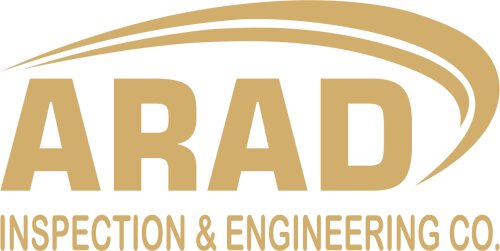Best Oil, Gas & Energy Lawyers in Iran
Share your needs with us, get contacted by law firms.
Free. Takes 2 min.
Or refine your search by selecting a city:
List of the best lawyers in Iran
About Oil, Gas & Energy Law in Iran:
Iran is one of the world's leading producers of oil and natural gas, making the oil, gas, and energy sector a crucial part of the country's economy. The legal framework governing these industries in Iran is complex and highly regulated, requiring specific expertise to navigate successfully.
Why You May Need a Lawyer:
There are various situations where individuals or companies may require legal assistance in the oil, gas, and energy sector in Iran. These can include contract negotiations, regulatory compliance, environmental issues, dispute resolution, and investment opportunities.
Local Laws Overview:
Key aspects of local laws in Iran that are particularly relevant to the oil, gas, and energy sector include the Iranian Petroleum Contract (IPC) model, licensing requirements, taxation, environmental regulations, and foreign investment restrictions.
Frequently Asked Questions:
1. What is the Iranian Petroleum Contract (IPC) model?
The IPC model is a new contractual framework introduced by Iran to attract foreign investment in its oil and gas sector. It replaces the previous buyback contracts and offers more favorable terms for international companies.
2. How are licensing requirements for oil and gas projects in Iran regulated?
Licensing requirements for oil and gas projects in Iran are overseen by the Ministry of Petroleum. Companies must obtain permits and approvals to explore, develop, and produce oil and gas reserves in the country.
3. What are the key environmental regulations that apply to the oil, gas, and energy sector in Iran?
Environmental regulations in Iran govern the impact of oil, gas, and energy projects on the environment. Companies must comply with standards related to pollution control, waste management, and conservation of natural resources.
4. Are there restrictions on foreign investment in Iran's oil and gas sector?
Yes, there are restrictions on foreign investment in Iran's oil and gas sector, including limits on ownership and participation in certain projects. However, the IPC model aims to provide more attractive terms for international investors.
5. How can legal disputes in the oil, gas, and energy sector in Iran be resolved?
Legal disputes in the oil, gas, and energy sector in Iran can be resolved through negotiation, mediation, arbitration, or litigation. It is essential to have legal representation familiar with Iranian laws and regulations.
Additional Resources:
For more information on oil, gas, and energy laws in Iran, you may refer to the Ministry of Petroleum, National Iranian Oil Company, and the Iranian Central Oil Fields Company. These organizations can provide valuable insights and guidance on legal matters in the sector.
Next Steps:
If you require legal assistance in the oil, gas, and energy sector in Iran, it is advisable to seek the expertise of a qualified lawyer with experience in Iranian oil and gas laws. They can provide tailored advice and representation to help you navigate the complex legal landscape in these industries.
Lawzana helps you find the best lawyers and law firms in Iran through a curated and pre-screened list of qualified legal professionals. Our platform offers rankings and detailed profiles of attorneys and law firms, allowing you to compare based on practice areas, including Oil, Gas & Energy, experience, and client feedback.
Each profile includes a description of the firm's areas of practice, client reviews, team members and partners, year of establishment, spoken languages, office locations, contact information, social media presence, and any published articles or resources. Most firms on our platform speak English and are experienced in both local and international legal matters.
Get a quote from top-rated law firms in Iran — quickly, securely, and without unnecessary hassle.
Disclaimer:
The information provided on this page is for general informational purposes only and does not constitute legal advice. While we strive to ensure the accuracy and relevance of the content, legal information may change over time, and interpretations of the law can vary. You should always consult with a qualified legal professional for advice specific to your situation.
We disclaim all liability for actions taken or not taken based on the content of this page. If you believe any information is incorrect or outdated, please contact us, and we will review and update it where appropriate.
Browse oil, gas & energy law firms by city in Iran
Refine your search by selecting a city.
















